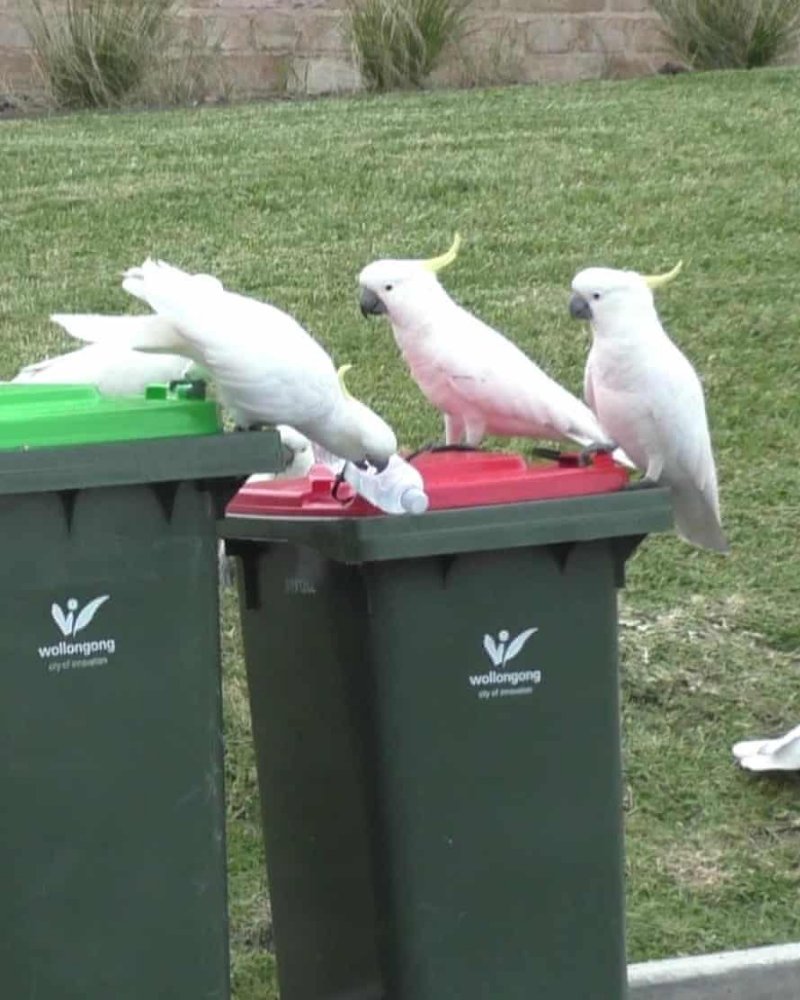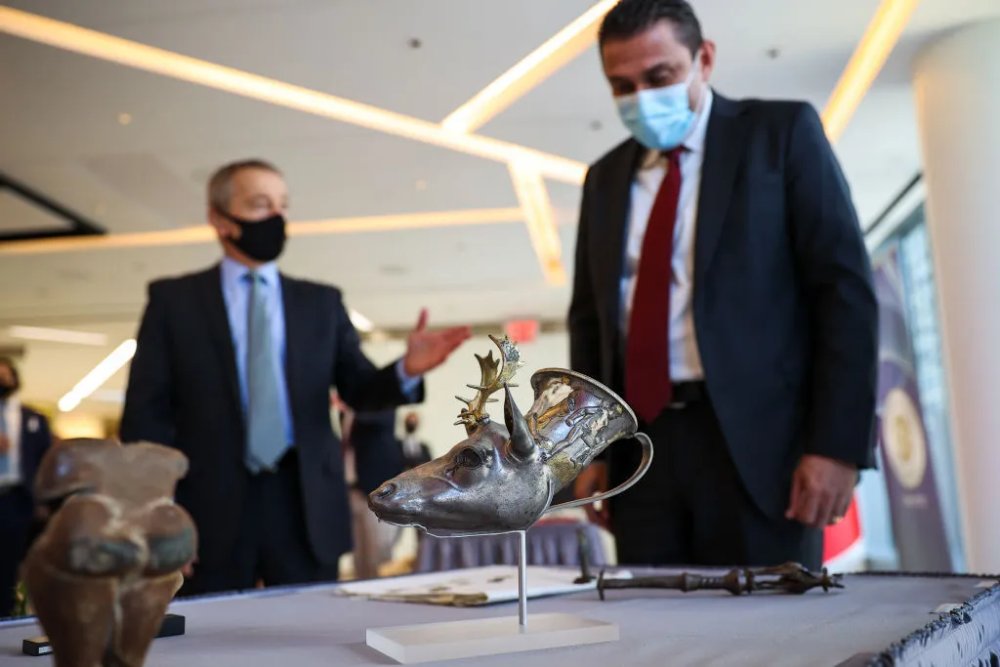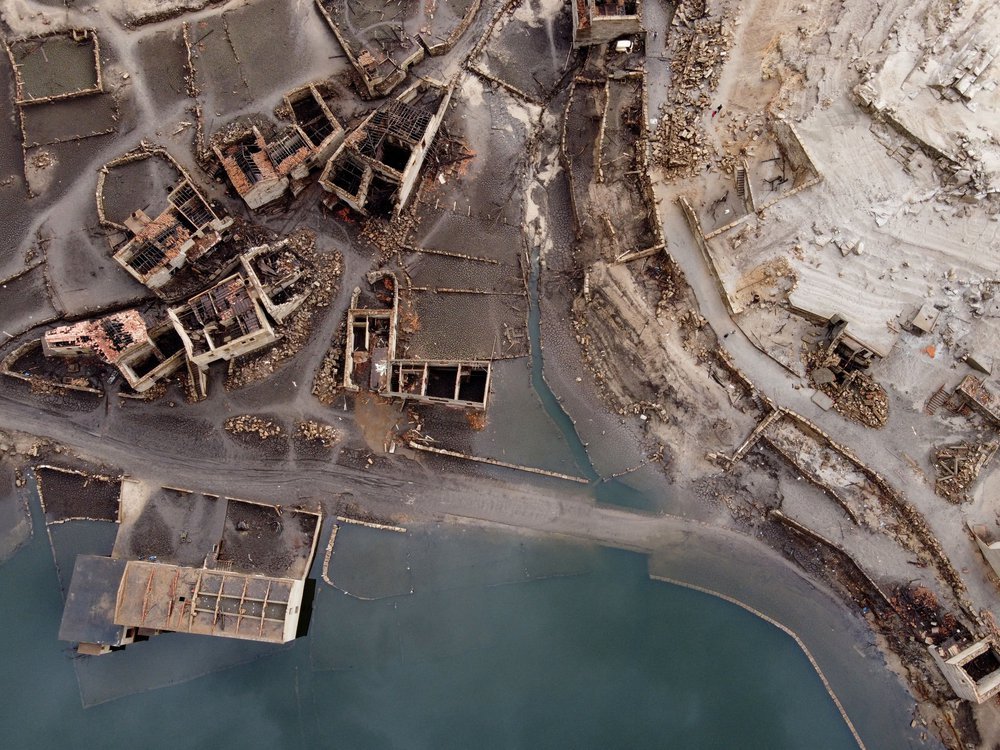The man who had to tell the bees the Queen was dead

The official beekeeper to the Royal Family, John Chapple, 79, told MailOnline how he travelled to Buckingham Palace and Clarence House on Friday following news of The Queen’s death to inform the bees of the monarch's passing. The ritual, which dates back hundreds of years, involves notifying honey bees of major events such as a death or marriage. While the traditions varied, “telling the bees” always involved notifying the insects of a death in the family—so that the bees could share in the mourning. This generally entailed draping each hive with black crepe. It was required that the sad news be delivered to each hive, by knocking once and then verbally relaying the tale of sorrow.
This man can identify any image from Google Maps in less than a second
Trevor Rainbolt has a special talent for being able to look at any image on Google Maps and pinpoint where it was taken with astonishing speed and accuracy. He can do so after only looking at the image for 0.1 seconds, five times in a row, and even if he is looking at images from two separate countries at once. Rainbolt can identify a country using only half of a distorted image, or an image that has been scrambled into pieces. He can look at only the trees. Or only the grass. Or only the sky. Sometimes, he can even name a country while blindfolded, just by having someone else describe the dirt.

Cockatoos and humans in "interspecies innovation arms race" over wheelie bins
Sydney residents are resorting to increasingly sophisticated measures to prevent sulphur-crested cockatoos from opening and raiding household wheelie bins, detailed in new research published in the journal Current Biology. The study, led by Dr Barbara Klump of the Max Planck Institute of Animal Behavior in Germany, documented 52 combinations of techniques used by humans to deter the birds from their bin-raiding antics. The researchers have previously described how cockatoos across the greater Sydney region learned their bin-opening skills from one another, with the behaviour spreading from sightings in three suburbs before 2018 to 44 suburbs by the end of 2019.

Baseball traveled to Japan 150 years ago, by way of Maine
Japan is celebrating 150 years of baseball this year, and it credits a Maine resident, Horace Wilson, for introducing the game there in 1872. After leaving Maine to fight in the Civil War, Wilson became one of many outsiders recruited by Japan’s government under the Meiji Restoration to teach the ways of the West to the country. Wilson is credited with teaching baseball in 1872 to his students at Kaisei Gakko, a forerunner to the University of Tokyo. That version of history was recognized as official when Wilson was inducted into the Japanese Baseball Hall of Fame in 2003, an honor that began with a phone call to Wilson’s descendants in Gorham in 2000, which left them flabbergasted.

Inside the strange world of the Antiquities Theft Task Force
The best photos to come out of the Met Gala every year are always the ones where you feel like a voyeur. It’s a weird combination of intimacy, celebrity, modernity, and antiquity that’s hard to replicate. A shot of Kim Kardashian leaning against an Egyptian coffin. Out of the thousands upon thousands who saw the shot, one happened to be more interested in the gold coffin than Kim’s body in gold Versace. He had looted the coffin seven years earlier but was never paid for his spoils. And it was now sitting in the Met. Angry and in possession of receipts, he fired off an anonymous email to the Manhattan District Attorney’s Office to tip them off about the buxom gold figure in the photo next to the Kardashian.

Researchers say this summer's drought is Europe’s worst in 500 years
The summer of 2022 has not been kind to Europe. Northern Italy went more than 100 days without rain. Droughts reduced seasonal crop yields by as much as one-sixth. And cities across Europe were forced to ration water as once-mighty rivers like the Tiber and Rhine dried up, revealing long-submerged traces of the past: a World War II barge in Germany, a 2,000-year-old bridge in Rome, a megalithic monument in Spain. These sobering statistics recently led Andrea Toreti, a researcher with the European Commission’s Joint Research Centre in Milan, to make a shocking declaration: that the 2022 drought is likely Europe’s worst in nearly 500 years, rivaling a 1540 “megadrought” that has long been an object of fascination for climate historians.

A fascinating display of bioluminescence
One of the biggest concentrations of bioluminescence in Marina del Rey, California.
— Massimo (@Rainmaker1973) September 13, 2022
A species of photosynthetic dinoflagellates is the cause of these impressive displays
[read more: https://t.co/a73FiwLbHl]
[📹 Patrick Coyne: https://t.co/usQcUGyVqc]pic.twitter.com/q3Dko51lwZ



